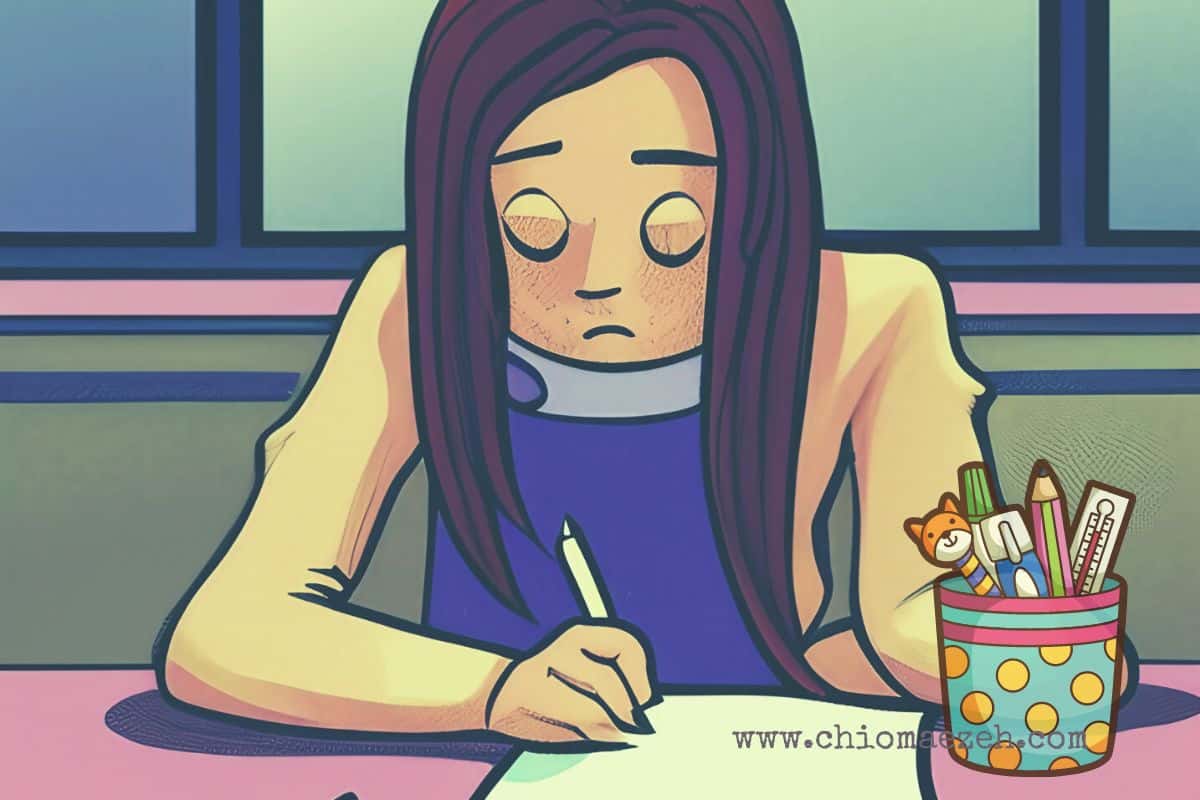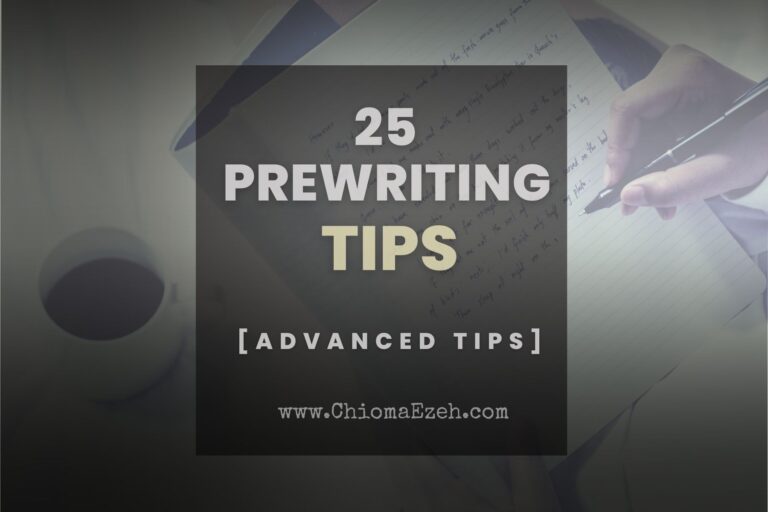How to Overcome Writer’s Block: 7+ Tips That Work [Exercises]
We’ve all experienced it at some point – the dreaded writer’s block. You can be in the middle of writing a brilliant story, and suddenly you feel like your creative juices have dried up completely. It’s frustrating and disheartening, especially if you’re on a tight deadline.
I remember when I was working on my first novel; I had worked for weeks to get it just right. But then one day, out of nowhere, my muse took off without me! I felt like nothing could break through that wall of creative impotence – until a friend suggested something so simple yet so effective.
And you know what? It worked!
Writer’s block is common but doesn’t need to be permanent. There are many ways to overcome this roadblock and get back into the flow of creativity again. In this article, we’ll explore how to overcome writer’s block so you can deal with it once and for all.
Let’s Talk
Are you a writer aspiring to pen a masterpiece that never fails to captivate? Look no further. Reach out to us and uncover how we can help you to take your writing to unprecedented heights!

What is Writer’s Block?

If you have ever been in a situation where you are unable to think of anything to write, no matter how hard you try, you might have experienced writer’s block.
Writer’s block is a term used to describe the feeling of being stuck or unable to think of ideas when it comes to writing. It can manifest in different ways, such as an inability to start a project, or struggling with finding words and thoughts that express what you want to say. This often happens when we have too much on our minds, are stuck in a mental rut, or feel overwhelmed by the task at hand.
Simply put, writer’s block is when a writer’s mind goes blank. And nothing comes to mind despite your best efforts.
Fortunately, there are strategies and tactics to help you break through this block and resume your creative work. But before we get right into that, what causes writer’s block?
What Causes Writer’s Block?
Writer’s block is an incredibly frustrating feeling that can lead to hours of wasted time if not properly addressed. We’ve all been there before; it can happen when we least expect it.

There are many things that can cause writer’s block. Here are some of them:
1. Anxiety
A certain amount of worrying and fear can prevent you from doing anything, including writing. So, yes, anxiety can cause writer’s block. Worrying about your writing, work, or other life situations takes up space in your mind. In addition, fear caused by anxiety can prevent you from being able to write.
According to the Mayo Clinic,
“People with anxiety disorders frequently have intense, excessive, and persistent worry and fear about everyday situations. Often, anxiety disorders involve repeated episodes of sudden feelings of intense anxiety and fear or terror that reach a peak within minutes (panic attacks)… These feelings of anxiety and panic interfere with daily activities,”
Mayo Clinic
2. Stress
An overwhelmed author might respond by freezing, which is technically also writers block. This happens when an overwhelmed author freezes, and is not able to continue writing. According to the World Health Organization (WHO),
“Stress affects both the brain and body. Little bit of stress is good for people to perform and protect themselves but too much stress can overwhelm them leading to fight, flight or freeze response.”
World Health Organization
3. Bad planning
Writers who don’t plan ahead, create outlines, and map out steps are more likely to be victims of writer’s block. If a writer doesn’t have the structure to work from, it’s easy for them to get lost in their writing and find that they can only move forward by taking a step back.
So, therefore, creating outlines cannot be overemphasized. Before starting any writing project, make sure you have all the details worked out and a plan in place.
See our guide on how to outline a book, with tips, formats, and examples
4. Lack of research
Writer’s block is sometimes caused by the fact that the writer doesn’t know a lot about the topic, which is a direct result of not enough research. If you have not done enough research, you’ll find it hard to come up with ideas for writing.
For example, if you are writing a book about the history of Rome and don’t know enough about the subject, you may not be able to come up with enough facts to details to write.
What Are the Symptoms of Writer’s Block?
Like most conditions, writer’s block has symptoms. Writer’s block can manifest itself in a variety of ways.

It can look like an inability to start writing, an inability to stay focused when writing, a lack of confidence in one’s work, or even a fear of the blank page.
Below are common symptoms of writer’s block:
- Frustration or anxiety when it comes to writing tasks. the more writer’s block you have, the more you might start worrying and fearing you will never finish writing, which could eventually cause anxiety.
- Procrastination around the time set aside for writing
- Self-doubt: constantly going blank could eventually lead to questions such as “am I a good writer at all?”
- Avoiding activities related to writing, such as researching and outlining
- Physical stress symptoms: stress can sometimes cause physical symptoms such as headaches, and stomach pains.
- Depression: feeling frustrated, discouraged, unmotivated, and overwhelmed when attempting to write or edit content.
- A hot temper: some authors can become angry when they fail to write, and the anger can end up being directed toward loved ones.
- Low motivation and a lack of inspiration
How Can You Overcome writer’s Block?

Writer’s block is not the end of the world. It is just a sign that you need to take some time off and regroup.
Here are the steps that can help you know how to overcome writer’s block and get back on track with your writing:
- Shut out the distractions.
- Schedule time for writing.
- Freewriting
- Work on something else.
- Reward yourself.
- Find an accountability partner.
- Use your outline.
- Use Writer’s Block Prompt Generators
Here are the techniques in detail:
#1. Shut Out the distractions.
You need to treat writing like any other job. This is especially true for new authors. One of the ways to do this is to get rid of distractions.

You won’t find a professor teaching mathematics in the middle of a noisy playground. You won’t find an accountant doing taxes in the middle of a religious service. This is because these are very distractive environments.
Similarly, you should pick an environment that is conducive to work and reduces distractions. Working from your sitting room or bedroom might sound convenient. But it is in fact a leading cause of writer’s block.
Your Livingroom contains temptations such as the television, radio, and your family having delightful conversations while you are working. Your bed can suddenly look very inviting if you are writing a particularly difficult chapter from your bedroom.
Here are guidelines you can use to avoid distractions:
- Turn an unused room, garage, or storage room in your house into a writing office – the goal is to get you in a place that has no distractions.
- Ask your family not to disturb you when you are working.
- Turn off your phone or put it on silent – it can be hard getting back in the writing rhythm if a lengthy call disturbs you.
- Block social media notifications on your computer – in fact, consider investing in distraction-free software that cuts you off from social media for a predetermined period.
- Be comfortable – you want your mind to focus on the writing, and not on how poor your lighting is or how cold you are.
Even if distractions don’t lead to writer’s block for you, they can still considerably slow down your work.
Exercises
- Make a note of the most distracting places in your home.
- Make a list of the least distracting places in your house or office.
- After looking at factors such as the availability of a specific place and its level of comfort, choose a suitable location for writing.
- Visit your favorite authors’ blogs and social media pages. Check if they ever mention or post pictures of their writing spaces.
Finding a quiet working environment at home is not always easy. Some households simply lack such a place. Here are other alternatives you can consider:
- the library
- a friend’s house
- hired office space
- a cafeteria at certain hours
#2. Schedule time for writing.
Your day job has set daily hours. There’s no reason your writing shouldn’t have the same. There’s something called “muscle memory”.
According to this New York Times article:
“Until recently, the term “muscle memory” usually described our ability to bike, ski, throw to first base or repeat other common physical tasks, even if we had not pedaled, schussed or beelined a baseball in years. Our bodies remember how.”
In other words, when you do something over and over, your brain eventually remembers how to do it without much effort on your part.
Imagine you sit down to write from 5:00 am to 7:00 am every single day. Your brain may eventually stop reminding you to wake up for your writing session and instead, anticipate it. So, your mind will automatically assume it is writing time.
And even when you don’t want to, ideas will automatically flow because that is the time your body associates with writing.
Keep the following in mind:
- Pick a time slot you know you can be consistent with.
- Try not to schedule other commitments during this time.
- All the rules from the previous step apply.
- Pick hours you know you are most productive – e.g., morning people are better at writing at 4:00am than they are at 6:00 pm.
Exercises
- Observe yourself, and decide what your most productive hours are.
- Sit down and write something in three half-hour sessions. Each session should be in the morning, afternoon, and evening. During which session are you able to produce high-quality work?
- Try to find out if your favorite author has ever said anything about their preferred times for writing.
- Choose writing hours and evaluate their effectiveness after a week.
People’s minds work differently. While some authors might benefit from having fixed writing times, it’s quite the opposite for others. Some writers feel that being timed puts them under so much pressure, they fail to perform. This is of course a form of writer’s block on its own. As always, do what works best for you.
#3. Free write
You’re probably tired of hearing this, but it’s true. Simply writing is the answer to many problems you’ll face as you work on your book.

Sometimes writer’s block is all in the mind. But when you force yourself to just sit down and start writing, you’ll be amazed at the amount of work you can get done. It doesn’t matter how good or bad your writing is. Just get it all down.
Keep the following in mind when freewriting:
- Don’t worry about spelling and grammar – in fact, obsessing over such details can lead to writer’s block.
- Write down whatever comes to your mind, even if it sounds stupid and boring.
- Now might be a good time to get out those prompt cards if you have them.
- Depending on how extensive your outline is, try writing a different section of the book.
Exercises
- Read up on the following:
- Prewriting
- Freewriting
- Looping
- Outlining
- Writing first drafts
Some writers find talking helps them unblock. Say your ideas out loud to yourself as you write. You can also try saying out your ideas while taking a walk or doing the laundry. Turn on your phone’s recorder, and listen to what you were saying later on.
#4. Work on something else.
Thinking about something so much, you can’t do anything about it, is not good for you. If obsessing over your book is causing writer’s block, it might be time to walk away from it.
Step away from the project for a while, and work on something else that takes up less mental energy. Working on something else and returning to your project with a fresh perspective can do wonders for your workflow.
You can choose to work on something else like writing a new short story, essay, poem, or even brainstorming new book ideas.
Remember the following:
• Make sure your breaks fit into your deadlines – running behind schedule and being under pressure can easily cause more writer’s block.
• Choose a lite project to work on – you don’t want to spend so much time on the side project, you end up neglecting the main work.
• Try to avoid complicated projects – you are trying to unwind here, and putting more strain on yourself doesn’t help.
• You can also work on other aspects of your project – for instance, you can start compiling a database of publishers who might be interested in your work.
• You can do things that are not work-related – go to the movies, read a novel, play a video game, etc.
Exercises
- List down at least five other lite projects you can work on when you want to step away from your book.
- Find a book or a website filled with writing prompts you can work your way through when writer’s block strikes.
- Make a list of tasks such as compiling publishers, finding literary agents, learning book marketing, etc. that you can work on when you need something else to do.
Always consult your deadline before using this technique. It only works if you have time on your hands. If your deadline is too close for comfort, ask your editor for an extension.
#5. Reward yourself.

People get incentives to boost their productivity at work all the time. Some companies offer employees bonuses and extra perks for certain achievements. You can also do the same with your writing.
We’ve already mentioned how writer’s block is all in the mind. Fortunately, the mind can be manipulated.
You can give yourself any number of incentives for writing. For instance, you can promise yourself a nice treat if you manage to write down 1000 words. You could also tell yourself you will stop writing as soon as you achieve one-third of your expected daily word count.
Keep the following in mind when motivating yourself:
- Be reasonable – you don’t want to break the bank by promising yourself expensive treats.
- Motivation material doesn’t have to cost you money – it can also be something like playing your favorite video game or watching television.
- Don’t restrict yourself – if you told yourself you only need to write 500 words, but you then feel you can do more, go right ahead.
- You can turn this into a habit – buy a bag of stars, and award yourself a star every time you hit a milestone.
Exercises
- Brainstorm possible bribes you can use on yourself when writer’s block hits.
- Find out how other professionals reward themselves.
- Come up with motivations that won’t cost you money.
Your motivation doesn’t always have to be short-term.
If you are one of the lucky few authors who manage to get a contract and advance before starting a project. Paste the contract on top of your desk or on the wall. Every time writer’s block comes, look at the contract, and imagine giving that money back.
#6. Find an accountability partner.
Accountability is the keyword here. Knowing someone is going to check can be all that your mind needs to fight writer’s block.
An accountability partner can be anyone from your spouse to a friend. That said, fellow writers make the best accountability partners. This is because you will be holding each other accountable, which is more of a fair trade. In addition, other writers will be able to give you more tips on conquering writer’s block.
You can find accountability partners on Facebook groups, Reddit, Twitter, and more.
Keep the following in mind when working with an accountability partner:
- Saying “I did my work this week” is not enough – you need to swap manuscripts for the process to work.
- If you and your accountability partner agree to also critique each other’s work, be gentle – remember these are most likely first drafts.
- Have a fixed deadline on which both you and your partner swap manuscripts.
- Don’t be pushy with your accountability partner – you don’t know what is happening in their personal lives.
- It’s okay to have more than one accountability partner – in fact, it’s encouraged, seeing as many people give up on writing midway through the process.
Exercises
- Try to find accountability partner forums/websites by searching in Google.
- Try to find potential accountability partners using your social media platforms – you don’t have to reach out just yet.
- Make a list of friends and family who would be willing to hold you accountable.
- Search for writers’ groups in your area – these are another source of accountability partners.
- Make a list of other places not yet mentioned you think you could find accountability partners.
If you are feeling particularly brave, you can have the public hold you accountable. Every time you finish with a specific section, edit it and post a very short extract that doesn’t contain spoilers to your social media.
Here are some search terms you can use to find accountability partners on the internet:
- accountability partner
- critique partner
- writing buddy
- writing partner
- critique circle
- beta reader
#7. Use your outline.
An outline remains the second most important document after the manuscript itself. A good and extensive outline can go a long way in countering writer’s block.
Here is the story of two authors: John and Vanessa.
John’s outline is vague and only covers chapter summaries. For instance: chapter 1: the main character’s father dies; chapter 2: the main character goes back to school; etc.
On the other hand, Vanessa’s outline is detailed. It contains scene-by-scene descriptions. Her chapter 1 outline might look something like: the MC receives news of his father’s death; the MC cries over his father; he thinks about all the good times with his father; he calls his brother to break the news; he drives to his mother’s house; etc.
John is going to have a harder time dealing with writer’s block. He has to force his mind to come up with every single detail, and when his mind fails, he is stuck.
On the other hand, Vanessa knows what exactly happens next. Even when writer’s block strikes, she can simply write down something like: “Tears fell from the mc’s eyes as he remembered his father’s face. He thought of all they did together.” She can come back to fill in exactly what the father and son did together later on.
In addition, Vanessa has the ability to skip scenes she doesn’t feel like working on for now. It will be very hard for John to do the same. If he can’t think of what should happen next, asking him to come up with events three chapters later is an unnecessary strain on him.
Outlines can be a lifesaver for most authors. Writers who refuse to use them do so at their own peril.
Exercises
- Go back and read our guide on How to outline a book
- Try to create an outline for any short story or essay you recently read.
- Create a detailed outline for the first chapter of your favorite book.
- Pick any short story or essay topic of your choice, and develop a detailed outline.
- Write a short story or essay using the outline you created in 3.
- If you already haven’t, develop an outline for your current project.
#8. Use a Writer’s block Prompt generator.
There are many websites and apps available that provide helpful prompts to get your creative juices flowing. These generators often provide random words and phrases as inspiration, which you can use to spark ideas for your writing. So, they can come in handy, especially if you’re writing a novel and you need to get out of a rut.
Here are guidelines you can use when using generators:
- Identify a specific goal for your writing session
- Start with a broad idea, such as “I want to write about relationships” or “I want to write a horror story.”
- Select an appropriate prompt and read it carefully.
- Think of ideas that relate to the prompt you have chosen.
- Take notes on the ideas you come up with and consider expanding on them.
- Utilize breaks in between writing sessions to help stay focused and energized
Exercises
- Jot down three prompts you have seen and list the ideas they sparked in your imagination
- Spend 10 minutes writing down as many words or phrases that relate to a prompt of your choice
- Choose one of the words or phrases you generated and write a short story or poem about it
- Select one of the topics you have been writing about and use a help generator to generate new ideas
- Take an hour or two to brainstorm ways of expanding the ideas you have generated with the help of the generator.
Don’t limit yourself to a single or few prompts. Try using more than enough and see where they take you. Use the help generator as a starting point, but don’t be afraid to go off in different directions if something inspires you. Above all, make sure that your writing reflects your own unique voice
FAQs On How To Overcome Writers Block
Can Anxiety Cause Writer’s Block?
Anxiety can cause writer’s block. Worrying about your writing, work, or other life situations takes up space in your mind. In addition, fear caused by anxiety can prevent you from being able to do anything, including writing.
The Mayo Clinic says the following about anxiety: “However, people with anxiety disorders frequently have intense, excessive, and persistent worry and fear about everyday situations. Often, anxiety disorders involve repeated episodes of sudden feelings of intense anxiety and fear or terror that reach a peak within minutes (panic attacks). … These feelings of anxiety and panic interfere with daily activities,”
Can Writer’s Block Be Cured?
Writer’s block can be cured or even prevented from happening. However, if writer’s block is being caused by a medical condition such as anxiety or stress, it is that condition that needs to be cured first. Whether or not the condition can be cured is something only your doctor can answer. That said, there are ways of dealing with writer’s block even when you have such conditions.
Why Do People Struggle With Writer’s Block?
There are many reasons people struggle with writer’s block. Some are medical, for instance, depression. Other reasons are environmental, for instance, working in a noisy place. However, the most common reasons are a lack of proper planning, such as not having an outline or not researching your topic.
How Long Can Writer’s Block Last?
This depends on each individual author. Writer’s block can last a few minutes to hours in some authors. Yet in some, it can continue for days.
Can Stress Cause Writer’s Block?
Stress can cause writer’s block. This happens when an overwhelmed author freezes, and is not able to continue writing. According to the World Health Organization (WHO), “Stress affects both the brain and body. Little bit of stress is good for people to perform and protect themselves but too much stress can overwhelm them leading to fight, flight or freeze response.”
Does Everyone Get Writer’s Block?
Writer’s block is a common feature of writing. Whether it’s going blank for a few seconds, or spending a week writing a 200 word conclusion to an essay, most people experience writer’s block at some point.
Final Words On How to Overcome Writer’s Block
Your mind going blank as that deadline looms ever nearer is one of the worst things that can happen to an author. Luckily, you can get rid of distractions, schedule a writing time, free write, and motivate yourself, amongst other techniques to beat writer’s block.

![What Are The Types Of Dialogue In A Story? [Explained]](https://chiomaezeh.com/wp-content/uploads/2023/03/types-of-dialogue-in-a-story-1-768x512.jpg)
![What Is Gore In Horror Writing? [Definition, Examples]](https://chiomaezeh.com/wp-content/uploads/2023/05/what-is-gore-in-horror-1-768x512.jpg)
![What is Prewriting in Writing Process? [Explained]](https://chiomaezeh.com/wp-content/uploads/2023/02/What-is-prewriting-1-768x512.jpg)


